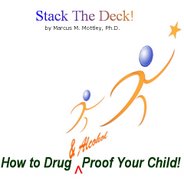WebMd Health News reports that when kids or teens face conduct disorders, substance abuse or other problems, family therapy may help.
In family therapy, one or both parents attend therapy with the troubled child. Other kids in the family don’ have to attend.
Researcher Allan Josephson, MD says there is “abundant evidence” that family therapy can often make a big difference in six areas: conduct disorders, substance abuse, depression, anxiety, eating disorders, and understanding attention problems.
Conduct disorders are serious violations of age-appropriate behavior that often involve physical aggression, property destruction, and truancy, says Josephson. He continues that “There’s no question that in this spectrum of family influence, conduct disorders clearly need family intervention and it's one of the more successful things when it's consistently applied,”
“It's very difficult to set limits without a child feeling secure,” says Josephson. “Most clinicians that work very intensively with these problems will have a situation where a parent says, “Fix the kid,”. The kid says, ‘Well, why should I come in on time? Why should I stop using drugs? He or she has never done a damn thing for me.’” Josephson notes that he has had that quoted to him directly.
When the parent signs on for family therapy, that’s a strong signal to the child, he notes. “The parent demonstrates their commitment to the child and the kid finally thinks, ‘Maybe I should go along with this,’” says Josephson.
According to Josephson and others, engaging parents in the treatment process and reducing the toxicity of the negative family environment can contribute to better treatment engagement, retention, compliance, effectiveness, and maintenance of goals.
Drug Prevention or Treatment
Family therapy helps kids quit using drugs, stay in drug treatment, and avoid related problems like truancy, says Josephson, citing “at least 12-14 well-designed studies.”
Parents who strongly show disapproval of illegal drug use also helps. He notes. “This is what these public information announcements in the last few years of parents as the ‘antidrug’ are about,” says Josephson.
I would go much further than Josephson. Parents who show a strong disapproval of any drug use are those that send a strong ‘anti-drug’ message to children. If a parent is sitting on the couch every night drinking a six pack of beer and watching TV – what kind of message is that sending? And can that parent then turn around and demand that their kids don’t drink? Parents must portray drug and alcohol use as dangerous for everyone and particularly life threatening for children.
Family therapy involves both parents and the individual child. Parents must be committed and demonstrate that commitment by full involvement in the therapeutic intervention. Family therapy can also serve as a strong therapeutic prevention initiative for children who are already demonstrating interest in anti-social activities or who have started to exhibit negative behaviors.
Family therapy in this context has not only a therapeutic goal, but an educative one as well. Therapists educate both parents and children about the impact of drug and alcohol use and how to deal with the individual, family and social climates and conditions which may lead to drug and alcohol use.
If you or your family is interested in family therapy as an intervention, find an experienced clinician who is both treatment and prevention oriented.
skip to main |
skip to sidebar

www.Prevent-Drug-Abuse.com
This Blog presents prevention strategies and techniques based not only on research, but on the success of parents, teachers, community experts, and successful teenagers and young adults.
Transformation & Emopowerment!
Blog Archive

www.Prevent-Drug-Abuse.com
